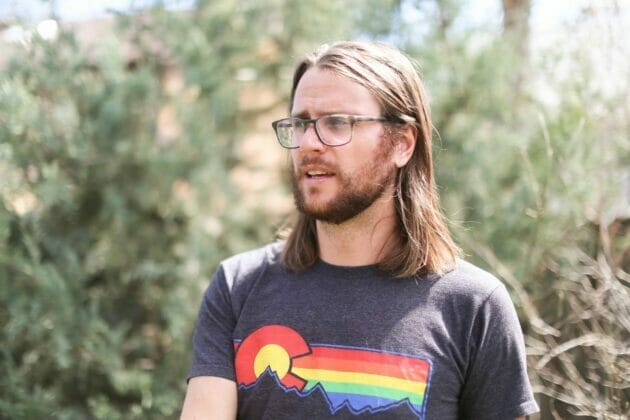In 2016, American venture capitalist Fred Wilson wrote, “One of the problems we have had in tech is that there aren’t large monetary incentives to create and sustain open protocols. If they are open they cannot be easily monetized by traditional means.” Wilson predicted that the emergence of blockchain technology and new ways of funding open-source protocols had the potential to change this paradigm.
Today, open-source developers are creating enormous economic value. In the future, open-source software (OSS) will enable high-fidelity, surveillance-free services with data portability that prevents users from being locked into any one platform. Building these products will require the time and talent of dedicated developers – but properly incentivizing developers to create and maintain these open systems is the real challenge.
Gitcoin is a double-sided marketplace that matches employers with skilled developers. Instead of figuring out how to build open-source products, Gitcoin is focused on building the right incentive structures to support development at the intersection of blockchain and OSS. In addition to sponsored hackathons and bounties that support developers, the Gitcoin Grants program is accelerating Web3 development by making quadratic funding (QF) mainstream.
WTF is quadratic funding? Though it might sound complicated, quadratic funding is what Gitcoin Founder and CEO Kevin Owocki described as the simplest, most efficient system for “democratically deciding how to prioritize disbursement of a limited pool of resources.”
According to Owocki, Gitcoin’s primary focus is supporting digital public goods projects. Public goods are things we all use and need. “In the physical world, this would be bridges, roads and clean air. In the digital world, OSS is a public good. It forms the backbone of our digital infrastructure – without it, the decentralized web couldn’t exist,” he said.
Funding public goods projects – in both the physical world and the digital world – is tough to do. The question is: “How does a community prioritize and allocate limited funds for public goods in the fairest way possible?” Owocki believes the answer is through QF.
“Gitcoin Grants is the largest QF mechanism on the planet,” he said. Each QF round begins with raising a matching pool from a group of large donors. Then, individual OSS projects crowdfund to raise their own funds. Once the crowdfunding period is over, the QF algorithm allocates a percentage of the matching pool to each project, based on how successful they were.
“The kicker is that the QF algorithm doesn’t just take into account how much money each project raised during the crowdfund. It takes into account how many people supported each project,” Owocki said. Using QF, Gitcoin Grants ensures that projects receive funding based on the value they bring to an entire community of individual donors instead of only a few large donors.
Gitcoin Grants Round 9 began on March 10th and will run for 15 days. Chainlink recently announced it is one of approximately 15 donors that pledged a combined $500,000 in matching funds. “Chainlink is an important member of our Funders League,” Owocki said. “Chainlink has also sponsored hackathons that allow developers to work with Chainlink’s technology and earn while doing it. We appreciate Chainlink’s commitment to supporting public works projects in Web3.”
Chainlink’s announcement cited Gitcoin Grants’ use of QF as a “key reason” for their continued support. Chainlink’s larger initiative to provide financial resources directly to developers in the smart contract ecosystem includes previous Gitcoin funding rounds, bug bounty programs and hackathons, as well as the Chainlink Community Grant Program, which supports development teams and researchers in building a more functional and accessible Chainlink Network.
Ultimately, Owocki said humanity’s greatest challenges are caused by coordination problems. “How do humans work together to collectively fund and build necessary things that benefit everyone, when not everyone knows and trusts each other?” In his view, the solution to these coordination problems is decentralized, open-source technology, such as blockchain and Web3.
“We strongly believe that Web3, blockchain and other open-source technologies are an essential force for good in the world. At Gitcoin, we want to make it possible for developers to quit their 9-5 to work in Web3. We want as much developer talent as we can get working to solve humanity’s coordination problems, so we can make the world a better place.”
To learn more about Gitcoin, check out their Twitter, Discord, YouTube and Facebook.
Elizabeth Licorish is a writer and author whose work has appeared in HuffPost, PhillyVoice and Bustle. In 2008, she wrote and co-authored Innovation for Underdogs. In 2010, she wrote and edited Charles Manson Now. She received her MFA in creative nonfiction from Rutgers University and has ghostwritten hundreds of executive thought leadership pieces for some of the world’s leading experts across diverse industries. She has been writing and editing for influential blockchain projects since 2017, when she fell in love with decentralized finance’s potential to empower individuals in an economically just world. As the editor-in-chief of Chainlink Today, she’s passionate about telling the human stories behind some of the most promising technology in the fastest-growing blockchain ecosystem.


